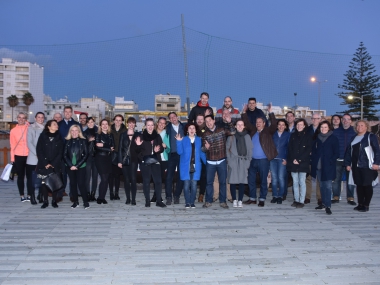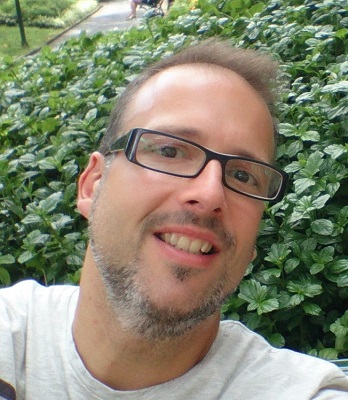PROJECT "VITAL CITIES" COMES TO THE END BUT LOULÉ WANTS TO KEEP INTERNATIONAL PARTNERSHIPS TO PROMOTE PHYSICAL ACTIVITY
Edited on
02 April 2018The ten cities that form the European network "Vital Cities" gathered on March 19 and 20 in Loulé, for the final meeting of this project to promote physical activity. As a leading partner, Loulé was the host of this review event where the partners had a clear positive balance, especially in the exchange of experiences and good practices.
Combating sedentariness in all age groups, creating solutions in the public space to encourage the population to practice sports, breaking social barriers through sport, promoting actions in poor areas, are some of the commitments assumed by the network that, in addition to Loulé, has also joined Burgas (Bulgaria), Krakow (Poland), Budapest (Hungary), Birmingham (England), Vestfold County / Horten (Norway), Rieti (Italy), Usti Nad Labem (Czech Republic), Liepaja and Sibenik (Croatia).

During this transnational meeting, the cities representatives had the opportunity to present the evolution and results of the local projects that integrate the action plans elaborated by each city, which will be guiding documents of good practices to be followed by everyone.
This project, funded by URBACT, is a European program of learning and exchange of experiences in the promotion of sustainable urban development and began in November 2015, at a meeting in Loulé with the initial partners of the "Vital Cities". In July 2016, the implementation phase started in the English city of Birmingham and this meeting in Loulé marked the conclusion of the project.
Meetings in some of the partner countries using a "deep dives" methodology in the cities with sharing of ideas, exchange of experiences, workshops or visits to areas to be intervened, were some of the actions executed. Always with the common objectives of promoting sustainable urban development, combating social exclusion by re-qualifying spaces in residential areas, using the power and common language of sport through innovative urban actions, diverse physical equipment and better organized and designed service provision to respond to the community’s needs.
As the lead expert of the "Vital Cities" Twan de Bruijn said, despite the conclusion of the program, all the ideas will remain in most cities because they "committed themselves to implement actions that have already begun, not only by organizing activities but also making investments, using European funds." Nonetheless the differences between the 10 cities, he emphasized the universality of the project. "Although they are all different and must adapt to what is required/ necessary at the local level, at the end the methodologies and what is applied is more or less universal. The idea of the project is also general: people have the right to be physically active and, on the other hand, cities offer them the possibility of being active," explained Twan de Bruijn.
Tiago Guadalupe, lead partner and coordinator of the project, made a very positive review of these two and a half years of networking. "Throughout this time the project was running, we were able to build a strong network. I think that each of the cities has developed a lot and has a background to do and to produce much more in the future", he said.
Regarding the next step, Tiago Guadalupe pointed out that the work is to carry on. In that sense, he assured that "all the conditions are fulfilled for a pilot project to be created at URBACT level, following the philosophy of the 'Vital Cities". And Loulé will inevitably be part of this project. "Loulé has the interest in understanding what is done in Europe, the new trends, etc. The world is constantly changing, while we blink our eyes it moves under our feet and that change has come to stay. We have to try to follow this change, to add value and, in a way, to adapt it to our reality and to our specific context", said the coordinator.
Pedro Pimpão, the deputy president of the Municipality of Loulé, also underlined the importance of networking, particularly in international terms: "It is only through partnerships that we all acquire better and healthier lifestyles. Because we learn from each other we progress as public entities and as citizens". In relation to the project "Vital Cities", he considered the results "very important", namely with regard to the three physical interventions that are under way in the County – the requalification of the area surrounding the Abelheira and Amendoeira neighbourhoods and the intervention in the Stuttgard and Coppingen Streets, in Quarteira, as well as the requalification of the area surrounding the Municipal Stadium of Loulé.
 Submitted by jguerreiro on
Submitted by jguerreiro on
